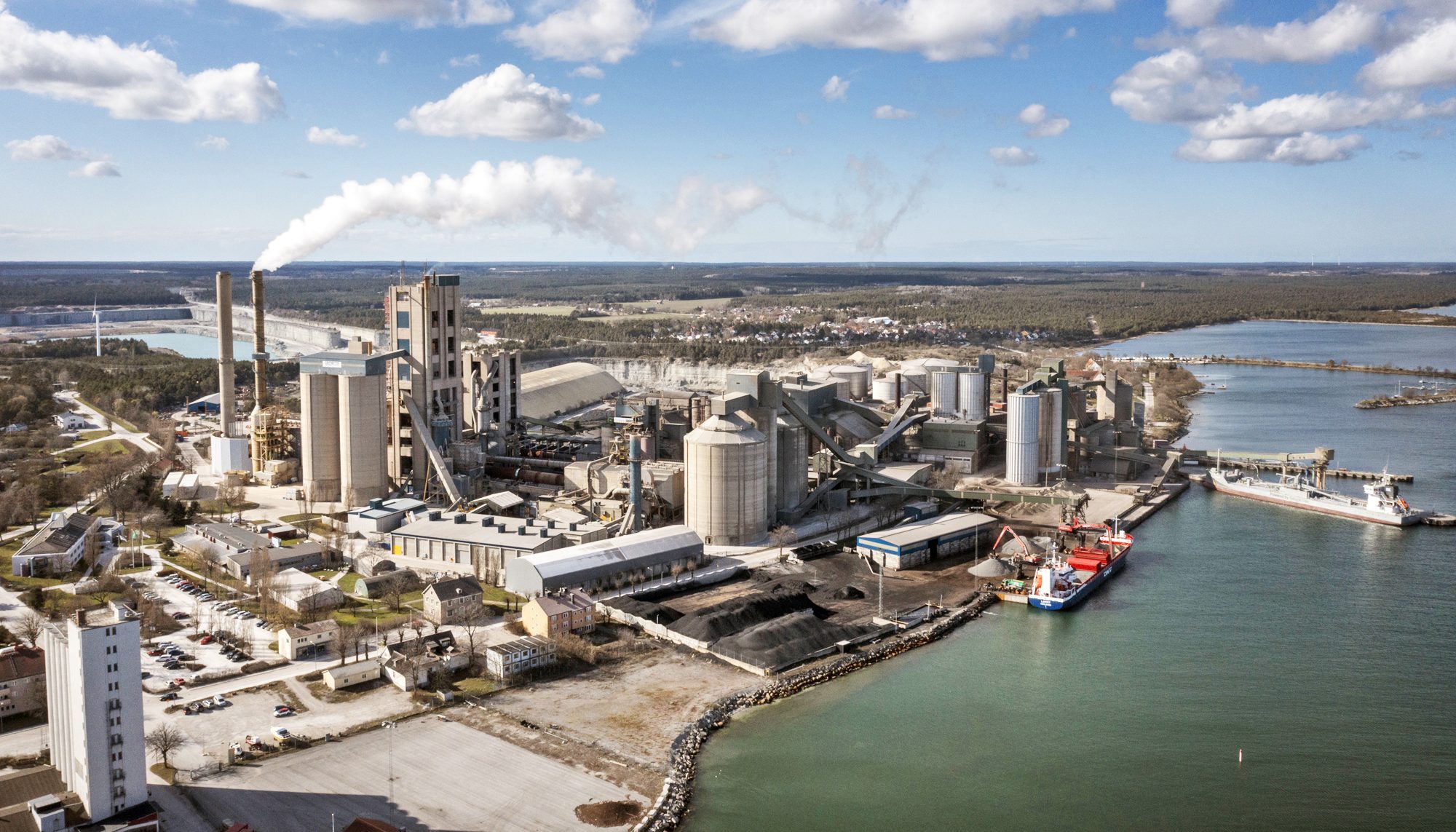One of the world’s largest cement producers and the only one in Sweden, Heidelberg Materials, is set to capture all the CO2 emissions at their cement plant in Slite, Sweden by 2030. Ramboll has been assigned by Heidelberg Materials to provide expertise supporting the current feasibility study at the large-scale CCS project.
Cement factories are among the largest industrial CO2 emitters in the world. In total, the industry accounts for approx. 8% of global CO2 emissions. The cement production requires large amounts of fuel, and the process of converting limestone into clinker releases CO2 inherently. About 40% of the CO2 emissions from a cement plant originate from the fossil fuel usage, while 60% stem from the calcination process.
Cement producers target a number of decarbonisation pathways including raising energy efficiency, increasing the use of bioenergy and substituting part of the limestone clinker with e.g. steel slag or other cementitious materials. However, the only solution at hand to decarbonise a cement plant completely and being able to produce carbon-neutral cement at large scale is to cut the emissions by using CCS technologies.
Heidelberg Materials, one of the world’s largest cement producers, is aiming to capture up to 1.8 million tonnes of CO2 emissions annually at their cement plant in Slite on the island of Gotland in Sweden by 2030. The emissions correspond to approximately 3% of Sweden’s total emissions. Part of the CO2 to be captured at the plant will come from biogenic sources, and the plant therefore has the potential to not only cut its own CO2 emissions, but also contribute to negative emissions in 2030.
“In a world where we need all hands-on deck to reduce greenhouse gas emissions and limit temperature increases, carbon capture is fundamental for hard-to-abate industries like cement factories. It might well be their license to operate”, says Burcin Temel Mckenna, Head of Carbon Capture at Ramboll.
Ramboll has been assigned by Heidelberg Materials to provide expertise during the current feasibility phase at the large-scale CCS project in Sweden. Engineering activities include investigating e.g. capture facilities, energy recovery optimisation, buffer storage as well as logistics solutions managing the captured CO2.
“We are continuously working to reduce the carbon footprint of our production and end products. Implementing carbon capture and storage will ensure net zero emissions in our value chain and at the same time allow us to meet the demand for cement needed in Sweden”, says Karin Comstedt Webb, Executive Vice-President of Heidelberg Materials Sweden.
On a global basis, the demand for cement has tripled over the last 40 years. In Sweden, around 3/4 of the country’s cement supply comes from the Slite cement plant, which has been in operation for more than 100 years. The climate-positive cement will be needed as an essential part in decarbonising all built environment.
The feasibility study will enable Heidelberg Materials to enter a Front-End Engineering Design (FEED) phase with basic engineering development. The feasibility study will be completed at the end of 2023.



























